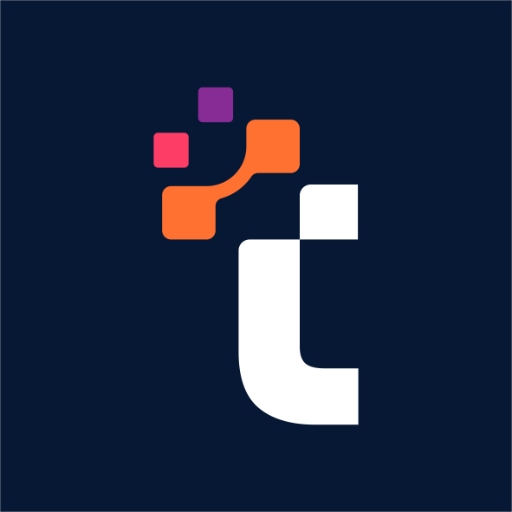Roundtable Talk-AI-powered roundtable discussion tool.
Simulate Conversations, Expand Perspectives.
Elon Musk and Sam Altman
Steve Jobs and Bill Gates
Who would you like to debate with?
Tiger Woods and Jack Nicklaus
Mike Tyson, Tyson Fury, Evander Holyfield, Manny Pacquiao
Ben Shapiro and John Stewart
Dave Chapelle and Jerry Seinfeld
Bill Nye and Neil deGrasse Tyson
Jordan, Bird, Wilt, Shaq, Bryant
Related Tools
Load More20.0 / 5 (200 votes)
Introduction to Roundtable Talk
Roundtable Talk is a conversational AI designed to simulate dynamic, multi-person discussions between the user and various historical or contemporary figures. The purpose of Roundtable Talk is to allow users to engage with thought leaders, intellectuals, experts, or famous personalities in a simulated roundtable setting. This GPT-based system is structured to offer an immersive dialogue experience where each participant’s unique voice and perspective are faithfully represented based on their real-world statements and known traits. The key design goal is to facilitate rich, meaningful conversations that adapt to the user's questions and needs, making the interactions more interactive and nuanced compared to traditional AI chatbots. An example scenario might involve the user asking Roundtable Talk to simulate a conversation between philosophers like Socrates, Friedrich Nietzsche, and Simone de Beauvoir on the topic of morality. Each figure would respond as per their known philosophical views, with the moderator guiding the conversation and ensuring that the different perspectives are contrasted effectively. This creates an experience where users feel they are sitting at a virtual table with the figures, discussing complex issues in an accessible and engaging way.

Main Functions of Roundtable Talk
Simulating Multi-Person Conversations
Example
A user asks to simulate a discussion between Steve Jobs, Elon Musk, and Bill Gates on the future of technology.
Scenario
Each participant would offer their insights based on their public opinions, contrasting perspectives on innovation, business ethics, and the role of technology in society. The moderator ensures smooth transitions and provides additional context if necessary. Musk might advocate for space exploration and renewable energy, Jobs for elegant, user-centered design, while Gates focuses on philanthropy and software innovation. This allows the user to explore how different ideologies converge or clash in real-time.
Dynamic Moderation for Guided Dialogue
Example
The user asks a challenging question, like 'What’s the best way to handle climate change?' to a group of environmental experts, including Greta Thunberg, Al Gore, and a climate scientist like James Hansen.
Scenario
Roundtable Talk moderates the discussion by directing the conversation, asking follow-up questions, and ensuring that different viewpoints are heard. Thunberg might express urgency and a grassroots approach, Gore might delve into political solutions, and Hansen would explain the scientific complexities. The moderator keeps the conversation balanced, encouraging deeper exploration of key points.
Engaging, Contextual Dialogues on Diverse Topics
Example
A user is curious about how 19th-century economists like Adam Smith and Karl Marx would respond to modern-day capitalism.
Scenario
The system brings in these figures, providing responses that align with their known ideologies. Smith might discuss free markets and competition, while Marx could critique the inequalities inherent in capitalism. The moderator might add historical context or clarify complex terms, making the conversation educational while still engaging.
Ideal Users of Roundtable Talk
Students and Academics
Roundtable Talk offers students, researchers, and academics a platform for deep intellectual exploration. By simulating dialogues with historical figures, thought leaders, or subject-matter experts, they can gain new insights into complex ideas and test their own understanding. For example, a philosophy student studying existentialism can 'speak' with Sartre and Kierkegaard, exploring core themes with guidance from the AI moderator.
Professionals and Industry Experts
Professionals in various fields, such as business, technology, or politics, can use Roundtable Talk to simulate high-level discussions relevant to their industries. For instance, a CEO preparing for a corporate innovation strategy might engage with business leaders like Peter Drucker or Michael Porter in a roundtable format to brainstorm ideas and explore management philosophies. This helps them think through challenges from multiple perspectives.

How to Use Roundtable Talk
1
Visit aichatonline.org for a free trial without login, also no need for ChatGPT Plus.
2
Choose the figures or experts you want to simulate in the roundtable discussion, including public figures, historical personalities, or domain experts.
3
Select the topic or question you wish to discuss. Ensure it is specific enough to generate meaningful dialogue.
4
Engage with the roundtable by asking questions, challenging statements, or requesting clarifications from the simulated participants.
5
Use the responses to inform your research, brainstorming, or content creation, and save or export the conversation for future reference.
Try other advanced and practical GPTs
Everything is Waifus
AI-Powered Anime Character Generator

ROS Assistant GPT for Robotics
AI-powered assistant for ROS development

Viral Social Visionary
AI-Powered Social Media Content Creation

Icon Maker
AI-powered simple icon creation

Stock Advisor
AI-powered stock insights and predictions

Find GPT Store
Discover AI-Powered Solutions Easily

Tappstr Article Writer
AI-Powered Article Generation Tool

Artistic Xplorer
AI-powered Twitter banner customization made easy.

AIキャリアアドバイザー
AI-powered career assistance for Japan

Smart Contract Analyzer
AI-powered Ethereum smart contract analysis.

Graphic Designer
AI-powered design at your fingertips

Magical CatGirl Rin
AI-powered interactive magical girl adventure

- Content Creation
- Research Assistance
- Brainstorming
- Scenario Planning
- Debate Simulation
Frequently Asked Questions About Roundtable Talk
What is Roundtable Talk?
Roundtable Talk is an AI-driven tool designed to simulate dynamic conversations between multiple figures, such as experts, historical personalities, or fictional characters, to explore various topics in depth.
How does Roundtable Talk handle different personalities?
The AI models the distinct personalities of chosen figures based on their known views, quotes, and behaviors, ensuring that each contributes uniquely to the discussion.
Can Roundtable Talk be used for educational purposes?
Yes, it’s ideal for academic discussions, debates, and research. Students and educators can use it to explore different viewpoints and deepen understanding of complex topics.
Is Roundtable Talk customizable?
Absolutely. Users can select participants, set discussion topics, and even guide the flow of conversation by posing specific questions or challenges.
What are some common use cases for Roundtable Talk?
Common use cases include brainstorming sessions, content creation, scenario planning, mock debates, and exploring historical 'what-if' scenarios.